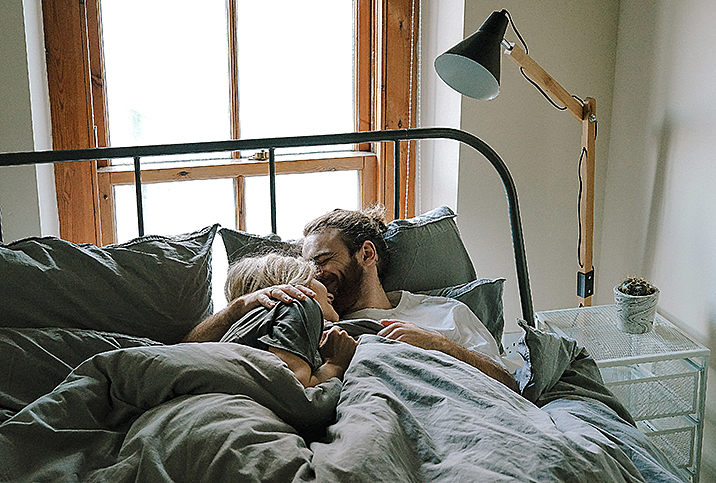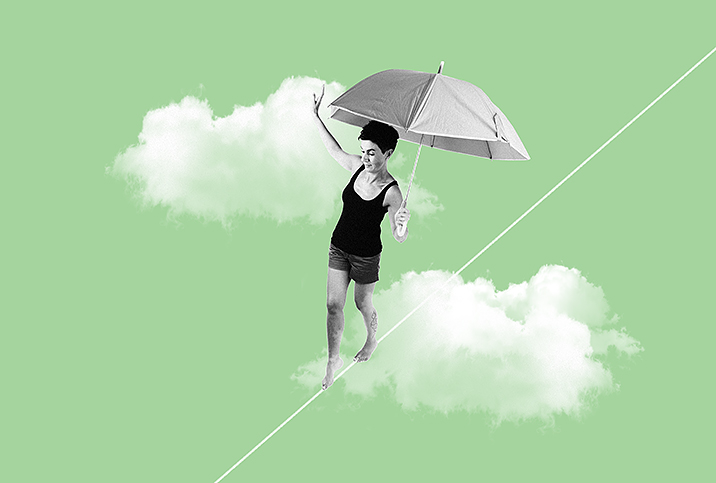Trouble Sleeping? Your Hormones May Be to Blame

Most everyone will experience problems with falling asleep and staying asleep at some point in their lives, but the risk of insomnia is greater if you're a woman. According to the Office on Women's Health in the U.S. Department of Health and Human Services, 1 in 4 women will be affected by insomnia, compared to 1 in 5 men.
Insomnia and other sleep disturbances can make it difficult to carry out day-to-day tasks, and this can cause accidents both at home and in the workplace. If left untreated, insomnia can lead to a greater risk of heart disease and stroke.
Why are women more at risk?
Women are more likely to experience sleep disturbances due to hormonal changes that occur at different stages of life. During menopause, there is a steady decline in estrogen, which can lead to hot flushes, night sweats and anxiety—making it difficult to fall asleep and stay asleep throughout the night.
Pregnancy is a cause of sleep-related issues due to elevated progesterone levels, leaving some women nauseated, hungry and anxious, which can keep them awake for most of the night. Pregnancy can cause extreme fatigue and exhaustion, leading more women to nap during the day, which makes it more difficult to fall asleep at night. It can become a cycle that is hard to break out of as the body gets used to this disrupted routine.
The link between PMS and insomnia
"PMS by definition is a set of symptoms that happen after ovulation," said Tara Scott, M.D., medical director of integrative medicine at Summa Health System in Ohio. "During that time, progesterone may be insufficient. Normally, progesterone helps initiate sleep through its stimulation of the GABA receptor, which helps you relax."
According to the Sleep Health Foundation, 7 in 10 women report a change in their sleep three to six days before their period. This includes restlessness, difficulty falling asleep and staying asleep. Some women report feeling more tired throughout the day compared to the nights.
"It is thought that during the luteal phase (days 15 to 28 of an average cycle), there is a decreased response to the hormone that makes us sleepy, called melatonin," explained Ravina Bhanot, MBBS B.Sc. DRCOG, founder of Zonas Fertility. "With reduced response to melatonin, there are less chemical reactions in the body to trigger tiredness."
It is unclear why some women experience disruptive sleep-related problems before their period, while others experience only mild symptoms. Every woman's body will react differently to hormonal changes, and factors like diet, exercise, stress levels and deficiencies can all have an impact on the body and how it responds to PMS.
Tips to manage your sleeplessness
If you often have trouble sleeping at night and staying awake during the day, this should be investigated with your doctor to rule out various health disorders. It's likely they will ask you questions regarding your diet, your lifestyle and your overall health to look for patterns.
"The first step in tackling this issue is to maintain a sleep diary," recommended Apurva Shah, M.D., a member of the Mira Medical Advisory Board. "Note down the symptoms day by day alongside the day of your menstrual cycle. This will not only confirm a correlation, but will also be a good starting point to talk to your doctor when you need help."
If symptoms are mild to moderate, it's possible to manage without medication. Having a consistent evening routine and sleep schedule can help when you're having trouble sleeping. Switch off all devices an hour before bed and try to lie down at the same time every night, regardless of what time you woke up. If you don't feel tired, spray some lavender oil mixed with water on your pillow, as this is shown to have a mild to moderate effect on sleep and relaxation.
Other things you can try are yoga, limiting sugar intake, minimizing stress and taking calcium supplements. If symptoms are severe and interacting with your day-to-day activities, contact your doctor immediately. They may recommend SSRIs or sleep aids to help with severe sleep disturbances.

















